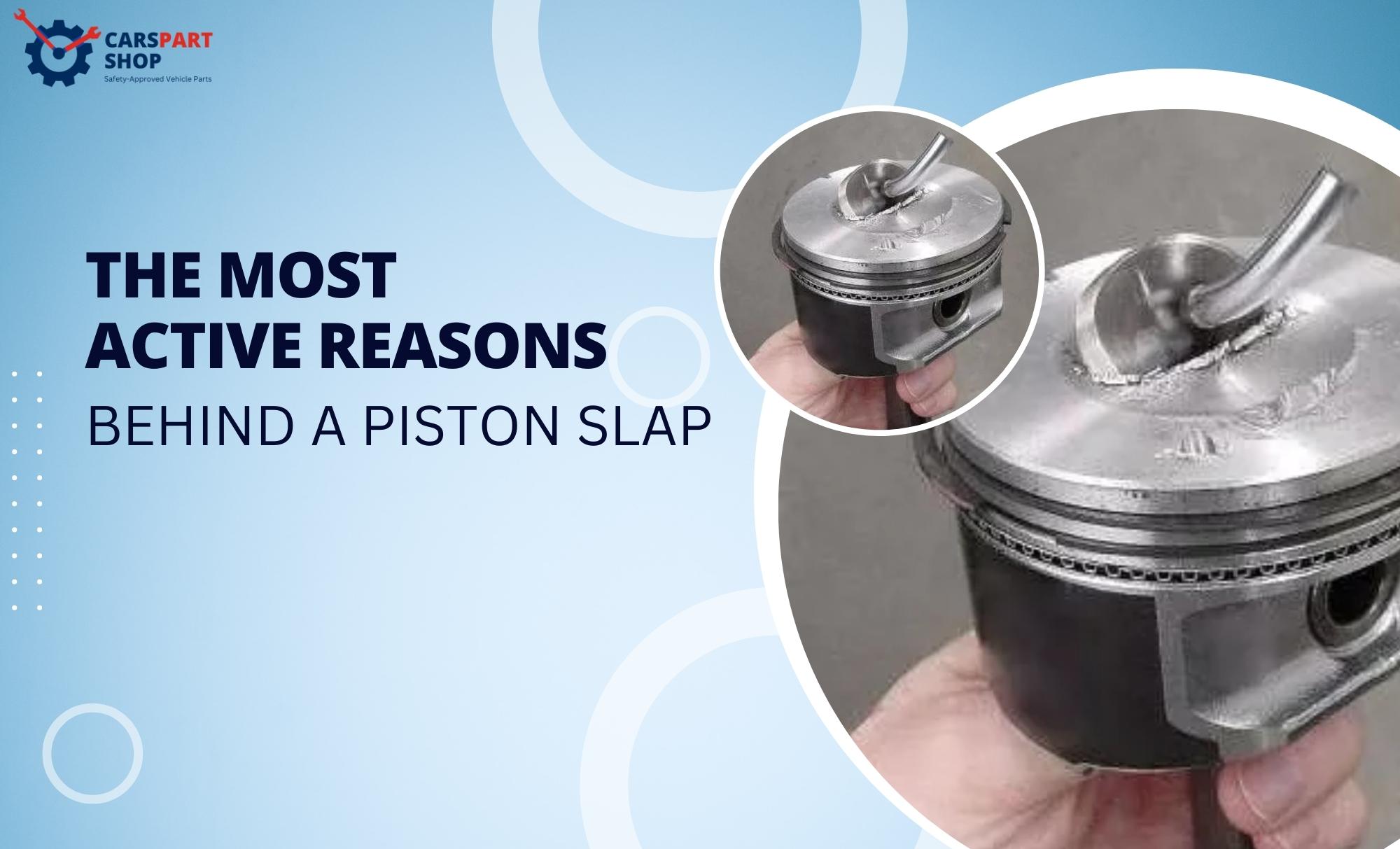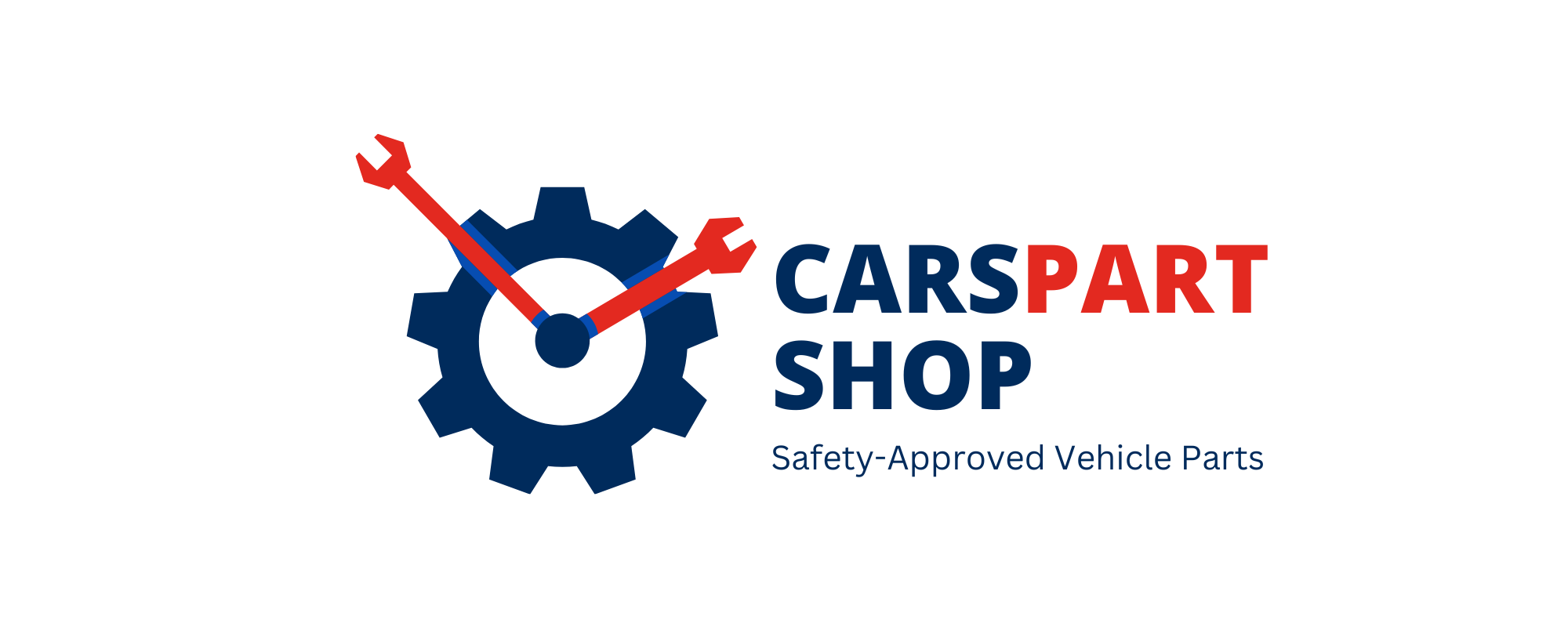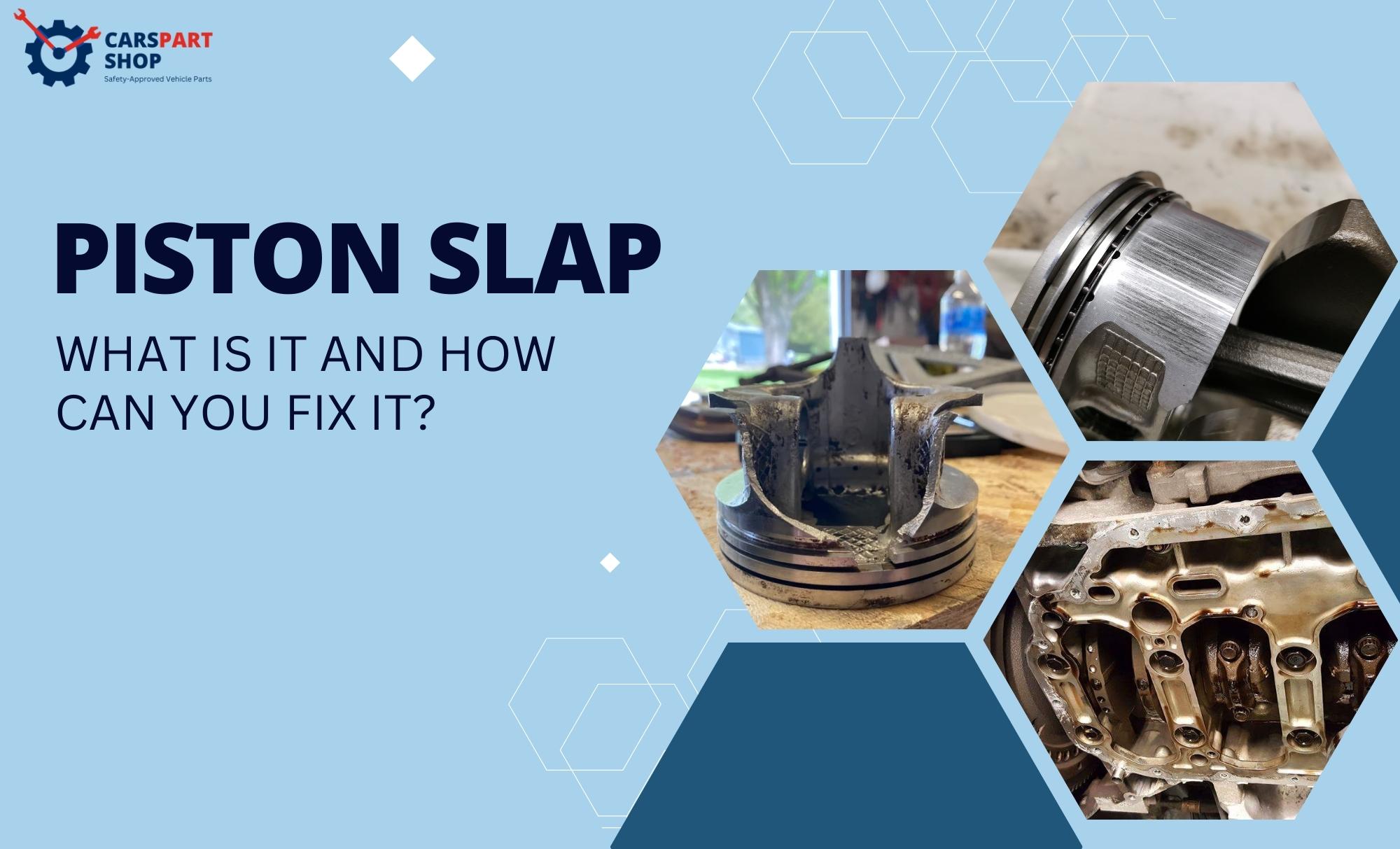Do you notice any rattling or knocking coming from your engine? Your piston may have slapped. You ask, “What is a piston slap?” That’s what we’ll be talking about here. We’ll cover everything you may want to know regarding your engine’s pistons, such as what a slappy piston means, whether you must be concerned about it, and more.
It is a phenomenon that occurs in internal combustion engines when the piston rocks or slaps back and forth within the cylinder bore, causing a knocking or ticking sound. This occurs when the clearance between the piston and cylinder is excessive, allowing the piston to move more freely within the bore. This can result in reduced engine efficiency and increased wear and tear on the engine components, if not addressed.
Table of Contents
ToggleWhat Is A Piston Slap?
There is little space between both the piston and the engine blocks because the piston in your vehicle fits into the cylinder quite tightly. This is acceptable because the side-to-side movements required by pistons to move up and down are minimal. This also aids in preventing the escape of the air and fuel combination.
Due to heat and friction, the pistons and cylinders wall will eventually affect. As they collapse, there will be an increase in space between the cylinder’s wall and the piston. When this occurs, the piston in the cylinder will shake and that makes a rattling sound. In simple terms, we call it a piston slap.
How Does A Piston Slap Sound Like?
A slappy piston sounds like a knocking or ticking noise that comes from the engine. It’s often described as a metallic or hollow sound that varies in intensity depending on the engine speed and load. The sound can be most noticeable during idle or light engine loads and may become less audible as the engine RPM increases. It’s important to note that the sounds can be similar to other engine issues such as rod knock or valve clatter, so we advise professional diagnosis to accurately identify the source of the noise
The Most Active Reasons Behind A Piston Slap

A slapping piston condition occurs when the clearance between the piston and cylinder wall is excessive, causing the piston to rock or slap back and forth within the bore. This can happen for several reasons, including:
Piston design: Some engine designs have larger clearances between the piston and cylinder to accommodate thermal expansion as the engine warms up.
Engine wear: Over time and with use, the engine components may wear and the piston-to-cylinder clearance may increase.
Manufacturing tolerances: Variations in manufacturing tolerances can also result in excessive clearance between the piston and cylinder.
Engine overheating: Severe engine overheating can cause thermal distortion, which can increase the piston-to-cylinder clearance.
The excessive clearance allows the piston to move more freely within the bore, which can result in reduced engine efficiency and increased wear and tear on the engine components
How Can You Fix Piton Slaps?
Piston slap refers to the noise caused by the loose fit of the piston in the cylinder of an internal combustion engine. The following steps can help fix the issue:
Install oversized pistons – This involves installing pistons that are slightly larger in diameter than the original size. The larger diameter allows for a tighter fit in the cylinder and can reduce or eliminate this.
Install piston skirts – Some engine builders install special piston skirts that help reduce piston-related issues. These skirts are usually made of low-friction materials and are designed to reduce vibration and noise.
Install cylinder liners – Installing cylinder liners can help reduce the issues by providing a tighter fit for the piston.
Upgrade engine components – Upgrading engine components such as rods, bearings, and crankshafts can reduce the vibration and noise caused by piston issues.
Engine rebuilding – You must determine whether an engine rebuild is necessary before proceeding, or if it would be preferable to simply sell the vehicle. We would actually advise selling your car as-is if the rebuild’s price isn’t too far off its market value. We do, however, have some advice if it’s still worthwhile or if you continue to maintain your car for nostalgic reasons.
In some cases, rebuilding the engine may be necessary to eliminate slappy pistons. This may involve boring out the cylinders to a larger size or using different materials for the pistons and cylinder walls.
These are the most common ways to fix slapping conditions of pistons, but the best solution will depend on the specific engine and the severity of the problem.
SOME USEFUL TIPS TO PREVENT PISTON SLAP
A slappy piston occurs when a loose-fitting piston rock or slaps against the cylinder wall, causing noise and vibration. To prevent this noise, the following steps are imprtant:
Proper engine assembly: During the engine assembly process, the piston-to-cylinder wall clearance should be checked and maintained to the manufacturer’s specifications.
Use of higher-quality materials:
The use of better-quality pistons and cylinder liners can reduce the likelihood of piston issues.
Engine oil viscosity:
The use of the recommended engine oil viscosity by the manufacturer can help reduce slappy pistons. Thicker oil can dampen the noise.
Engine design:
Engine design factors such as using stiffer connecting rods, heavier-duty crankshafts, and strengthened bearing supports can help reduce the slap.
In conclusion, proper engine assembly, using high-quality materials, using the recommended engine oil viscosity, and good engine design can help prevent piston slap.
Upgrade your engine’s performance with high-quality pistons. Buy now and unleash your engine’s full potential!
Piston Slap – FAQs
Yes, Your piston and bores will wear out from the piston slap. But the rate of wear will depend on how severe your piston slap is. Keep a watchful lookout for smoke coming from your exhaust since it can also raise the risk of your engine developing an oil leak.
The squeeze action of the oil can be used to reduce the piston slap motion. Which can also be expected to reduce the friction force between the piston and the cylinder wall.
In a car engine with severe wear, such as that on the cylinder and piston skirts, there may be an excessive clearance or play. Which can lead to overheating and piston slap. At idle or low rpm, this would show itself in visible ways.
One of the earliest indications of engine failure is a rod knock. It is a loud pounding sound that is frequently brought on by bearing wear. It may be anything in the irritating “rattle rattle” or “cancan cancan” noises, which could get louder depending on the engine’s speed and load.







